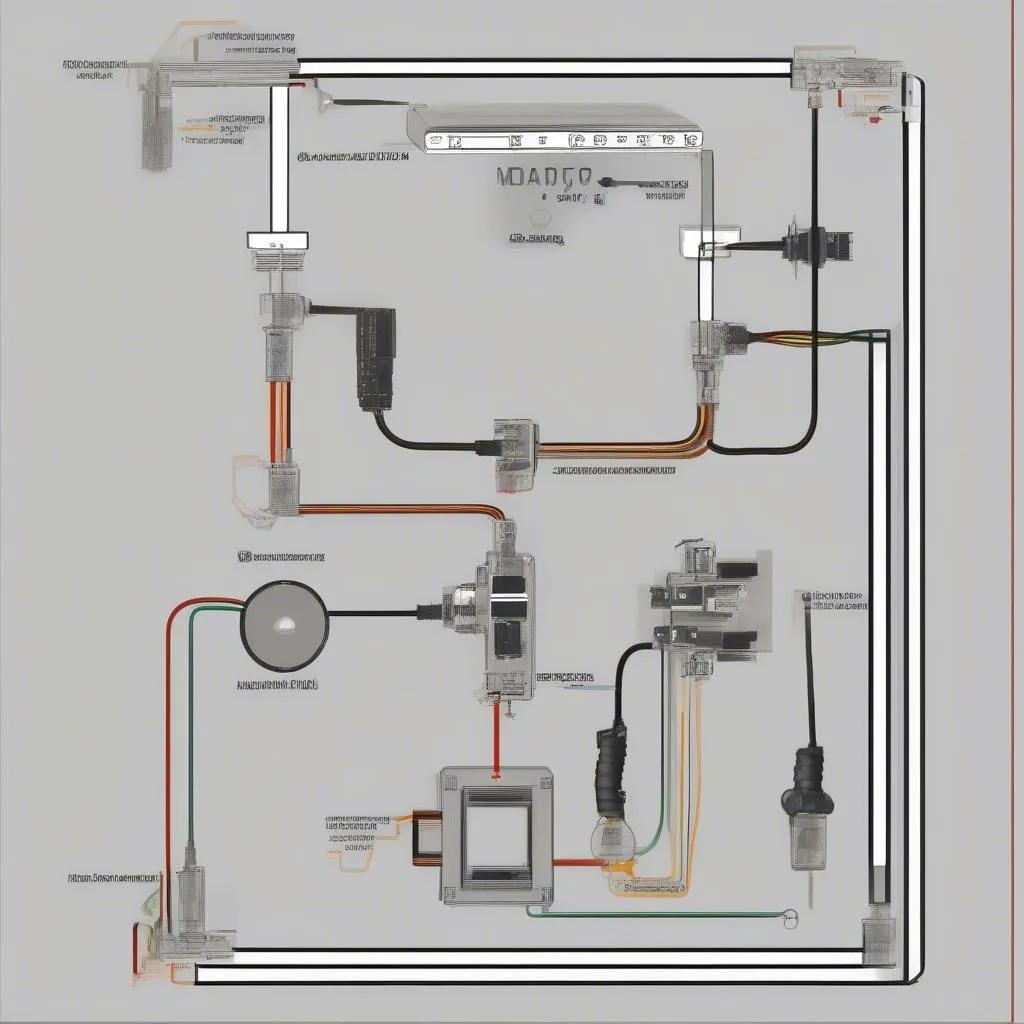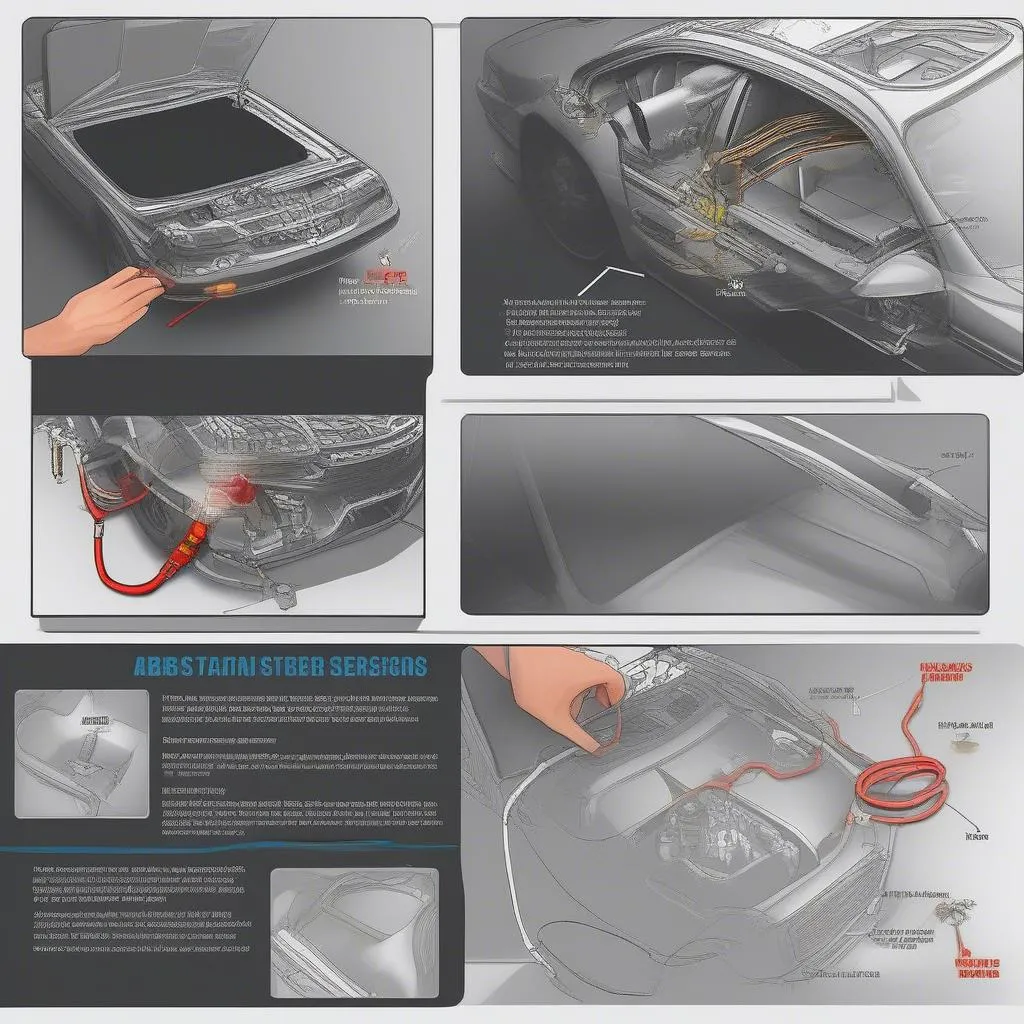Have you ever wondered what that little sensor is doing near your brake disc and why it’s so important? Well, let me tell you about the ABS sensor, an unsung hero of the automotive world, working tirelessly behind the scenes to keep you safe on the road.
Imagine you’re driving down a slippery road on a rainy day, and suddenly, you need to brake hard. Without the ABS sensor, your car would likely lock its wheels, leading to a terrifying skid, potentially causing an accident. However, thanks to this little sensor, your car’s Anti-lock Braking System (ABS) can detect wheel lockup and instantly apply pressure to the brakes to prevent it.
What is an ABS Sensor?
The ABS sensor is a critical component of your car’s Anti-lock Braking System. It’s a small, magnetic device typically located near each wheel. Its primary function is to monitor the speed of each wheel. This information is sent to the ABS control module, which uses it to determine if any wheel is locking up.
How Does An ABS Sensor Work?
The ABS sensor works by using a magnetic field to detect the rotation of the wheel. The sensor contains a magnet that generates a magnetic field. When the wheel rotates, the magnetic field is disrupted, creating a voltage pulse. The frequency of these pulses is directly proportional to the speed of the wheel.
Importance of ABS Sensors
ABS sensors are crucial for your safety on the road. They are essential for:
- Preventing wheel lockup: As mentioned earlier, ABS sensors prevent your wheels from locking up during braking, allowing you to maintain control of your vehicle.
- Shortening braking distance: ABS systems can shorten your braking distance, especially on slippery surfaces, by preventing wheel lockup and maintaining maximum tire grip.
- Improving steering control: By maintaining wheel control, ABS sensors improve steering control during braking, allowing you to maneuver safely even in emergency situations.
- Preventing accidents: ABS sensors are proven to reduce the likelihood of accidents, particularly those related to sudden braking or slippery conditions.
How to Know if Your ABS Sensor is Failing
If your ABS sensor is failing, you may notice a few warning signs, such as:
- The ABS light on your dashboard illuminating: This is the most common indicator of an ABS problem, often indicating a faulty sensor, wiring issue, or malfunctioning ABS control module.
- The ABS system not working properly: If you feel your wheels locking up during braking, it could indicate a faulty ABS sensor.
- A clicking or grinding noise from the wheels: This could be a sign of a damaged ABS sensor, especially if the noise occurs during braking.
Troubleshooting ABS Sensor Problems
If you suspect your ABS sensor is failing, it’s best to have it diagnosed by a professional mechanic. However, you can also check the following:
- Check for any damaged wiring: Inspect the wiring connected to the ABS sensor for any cuts, fraying, or loose connections.
- Clean the sensor: If the sensor is dirty or covered in debris, it can affect its performance. Clean the sensor with a clean cloth and compressed air.
- Test the sensor using a multimeter: You can test the sensor’s resistance using a multimeter to determine if it’s functioning properly.
Common FAQs about ABS Sensors
How do I reset the ABS light after changing a sensor?
You can usually reset the ABS light by driving the car at speeds above 5 mph for a few minutes after replacing the sensor. However, you may need to use an OBD-II scanner to reset the light in some cases. For more detailed instructions, you can check out our article, “How do you reset the ABS light after changing a sensor?“.
What are the signs of a failing ABS sensor?
The most common sign is the ABS light illuminating on your dashboard. Other signs include wheel lockup during braking, clicking or grinding noises from the wheels, and a general lack of responsiveness from the ABS system.
How much does it cost to replace an ABS sensor?
The cost of replacing an ABS sensor varies depending on the make and model of your car. You can expect to pay anywhere from $100 to $500 for the sensor itself, plus labor costs.
What Else Should I Know?
While ABS sensors are incredibly helpful, it’s crucial to remember that they are not a substitute for safe driving habits. Always maintain a safe following distance, avoid distractions, and be aware of your surroundings.
 abs sensor wiring diagram
abs sensor wiring diagram
 abs sensor installation guide
abs sensor installation guide
Conclusion
Understanding the role of the ABS sensor is crucial for keeping you and your passengers safe on the road. If you experience any problems with your ABS system, make sure to consult a professional mechanic. And remember, while ABS sensors are a great safety feature, always practice safe driving habits to ensure the safety of yourself and others.
Do you have any other questions about ABS sensors? Share them in the comments below!
If you need any help with your car’s diagnostics, feel free to contact us through our website or our WhatsApp line: +84767531508. We have a team of experienced professionals available 24/7 to help you with any car-related issues.